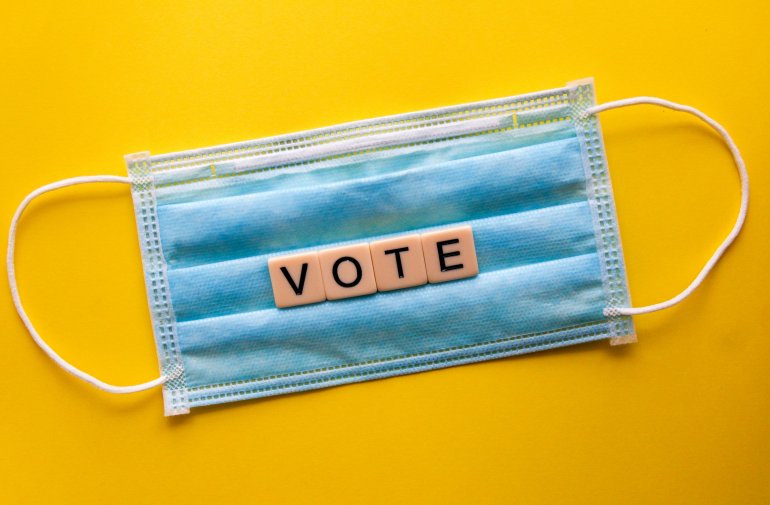Why civic education needs to be an essential part of the early childhood years

Fall is here and signs of the 2020 election are everywhere. Throughout the community, there are lawn signs, billboards, and advertisements on TV. There is energy in the air and strong feelings in many homes about hopes and dreams concerning the election results. Young children are incredibly perceptive. They see and hear the world around them and are seeking – yearning – to make sense of it all. Through play, children get the opportunity to experience scenario planning, role-playing, hypothesizing and more. Introducing young children to the concepts of democracy and citizenship is a fundamental value of our American educational system. The values that the democratic process teach are important to learn regardless of whether or not it is an election year. As educators and parents, we can explicitly name these values for young children and help them engage with what they are noticing.
There are a number of key values from both our democratic process and our Jewish tradition that we can bring to our youngest learners. By doing so, we can help create a more empowered, socially conscious and active generation in the future. These include but are not limited to:
· Tikkun Olam (Repairing the World) Each person can make change happen
· B’tzelem Elohim (We are Created in the Image of G-d) Each voice is equally important
· Mahloket (Disagreement) Sometimes we disagree and feel disappointment.
· Kavod (Respect) Being friendly is important
· Shalom Bayit (Peace in the home) We value peace in our home and communities
It is important to remember that these values are always critical elements of excellent Jewish early childhood education. We must remember that good Jewish early childhood education reflects good democratic education, which reflects the basic building blocks of a good democracy. We can include these values through a variety of election play and exploration. Young children enjoy engaging with themes over a period of time. Introducing themes and vocabulary of voting ahead of the election gives children the opportunity to feel capable of understanding the world around them. Also, extending election play past the election itself can help them revisit the themes and continue to create alternate realities through pretend play. This helps them work through feelings or ideas that they might hear surrounding them. Exploring voting should use a variety of different learning modalities and hands on experiences such as creating a mock election, reading books focused on voting or elected officials, or interviewing people who have voted. You can find more through looking at our early childhood election Resource Guide.
These are just a few ways to provide opportunities for young children to feel part of the process, although they will not be voting in our general election this year. They know that the issues are important and that the grown-ups in their world are voting because they care about the future of our country for themselves and their children. Through talking about this process in our schools and homes we are empowering our children to know that they are part of a democratic society where each ballot gives voice and the power to change. We hope that this season all of you and your children will have an opportunity to VOTE and use your power to make the change you want to see in the world.
Sasha Kopp is a Community Educational Consultant for Early Childhood and Family Learning at The Jewish Education Project.
Photo by Glen Carrie on Unsplash